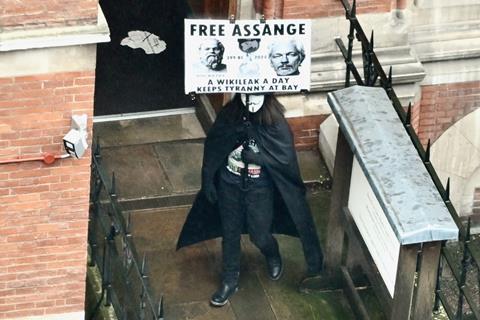Julian Assange will not be deported to the US immediately for trial on espionage charges, after the High Court ruled this morning on the WikiLeaks founder’s ‘final’ legal challenge to his extradition.
The US government has been given three weeks to provide assurances that Assange could rely on the Constitutional First Amendment (which protects free speech), that he is not prejudiced at trial by reason of his Australian nationality and that the death penalty will not be imposed.
If those assurances are not given, leave to appeal will be granted on those grounds. If they are, there will be a further hearing on 20 May to decide if those assurances are satisfactory and to make a final decision on leave to appeal.
Today’s ruling was given by Dame Victoria Sharp, president of the King’s Bench division, and Mr Justice Johnson.
The court refused leave to appeal on six other grounds, including that the UK-US extradition treaty prohibits extradition for a political offence, and that the extradition is incompatible with article 7 (no punishment without law) of the European Convention on Human Rights.
Last month 35 law professors wrote to the US Department of Justice warning that Espionage Act charges against Assange ‘pose an existential threat to the First Amendment’.
Assange has been held in London’s Belmarsh prison for five years.




























8 Readers' comments